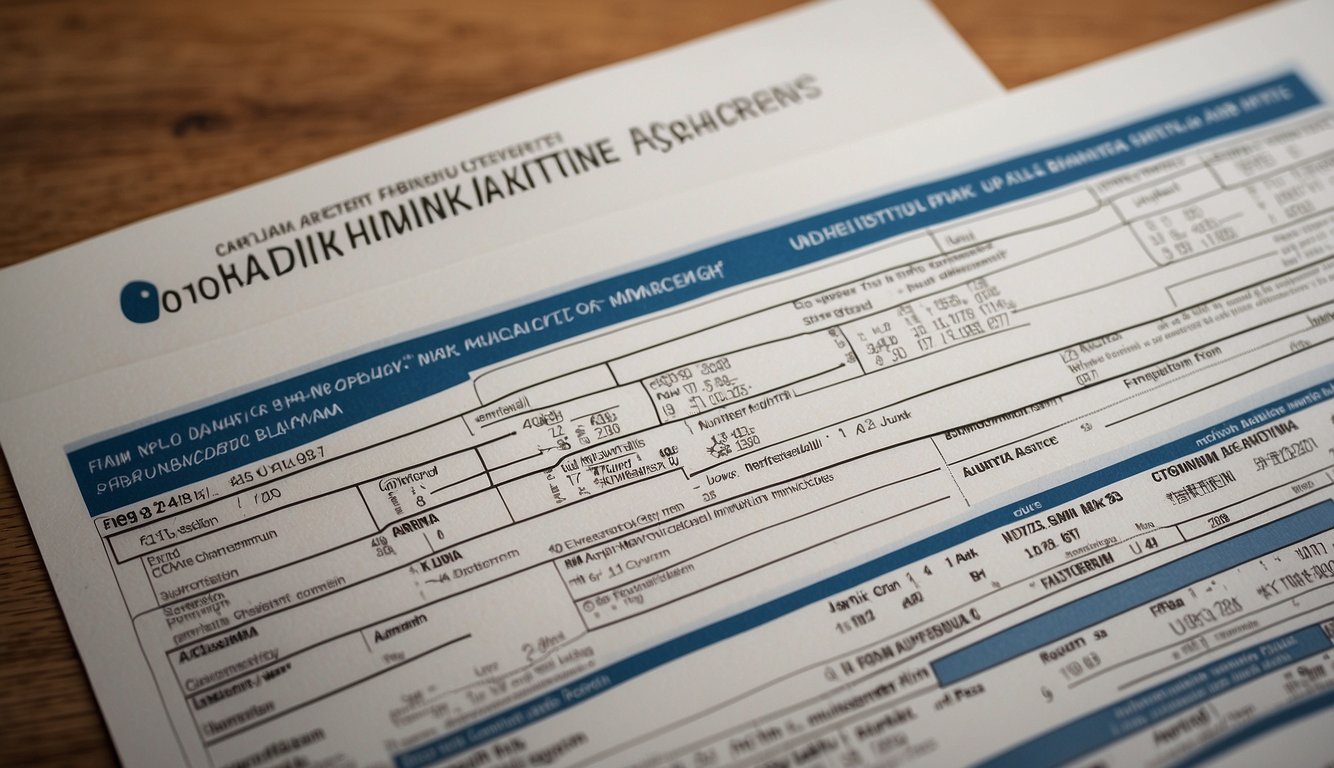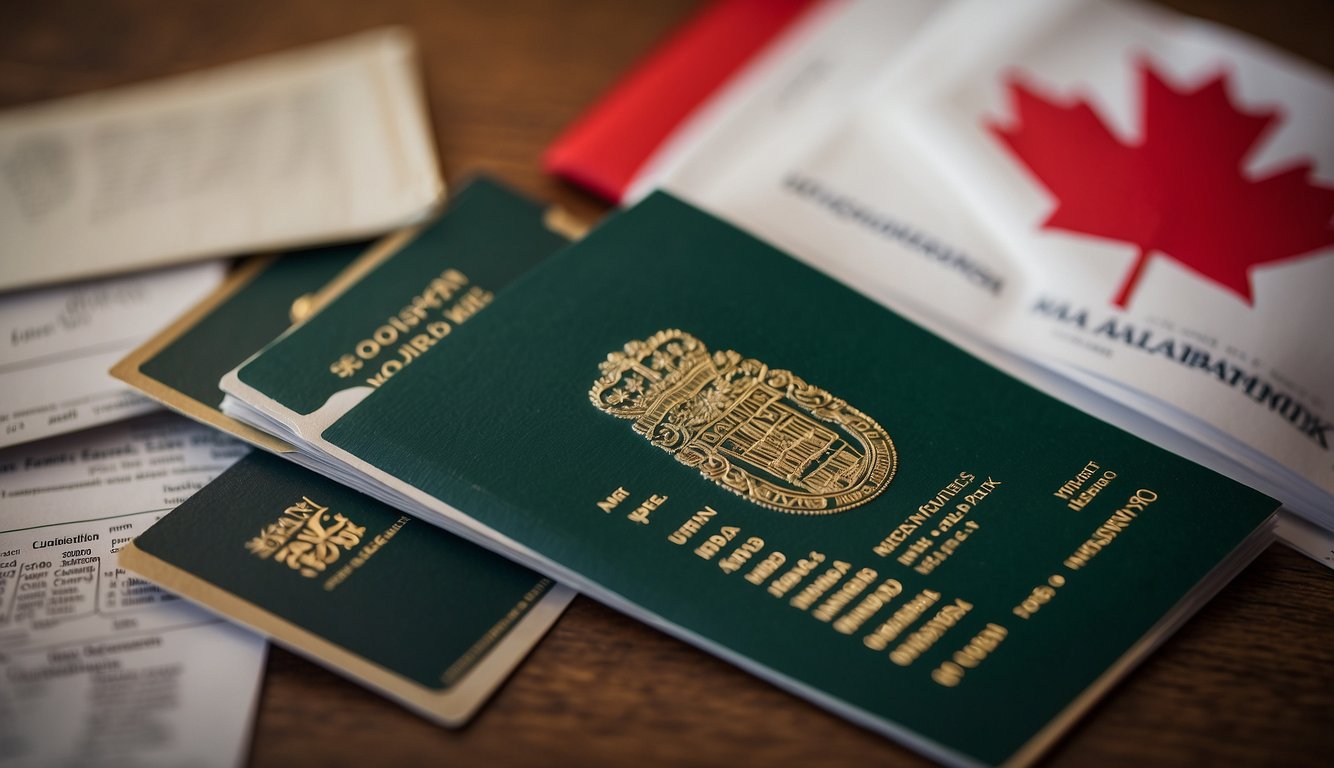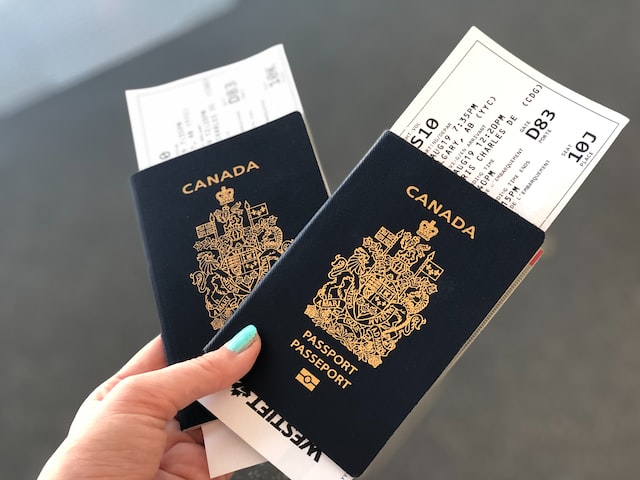If you are a Nigerian student planning to study in Canada, one of the requirements you must meet is the minimum bank balance. This is a crucial factor in obtaining a Canadian student visa, as it shows that you have enough funds to cover your tuition fees, living expenses, and other costs associated with studying in Canada.
In this article, we will discuss the minimum bank balance for a Canada student visa from Nigeria and provide you with all the information you need to know.
To study in Canada, you will need to apply for a Canadian student visa, also known as a study permit. One of the requirements for this visa is to show proof of sufficient funds to cover your expenses while in Canada.
This includes tuition fees, living expenses, transportation costs, and any other expenses related to your studies. The minimum bank balance you need to show will depend on the length of your program, as well as the location of your institution.
As a Nigerian student, you will need to provide evidence of your financial capacity to support your studies in Canada. This means showing proof of your bank statements, scholarship awards, and other sources of income.
It is important to note that the Canadian government takes financial capacity seriously, and failure to meet the minimum bank balance requirement may result in your visa application being denied.
Table of contents
Canada Student Visa

If you are a Nigerian student planning to study in Canada, you will need to obtain a Canada Student Visa, also known as a study permit.
This permit allows you to study in Canada for a specified period, usually the length of your study program plus an additional 90 days.
Eligibility Criteria
To be eligible for a Canada Student Visa, you must meet certain criteria. You must have been accepted by a designated learning institution (DLI) in Canada, have proof of acceptance, and be able to prove that you have enough money to support yourself during your stay in Canada.
Additionally, you must not have a criminal record and be in good health.
Application Process
To apply for a Canada Student Visa, you must first apply for a study permit online or through a paper application. You will need to provide personal information, such as your name and date of birth, as well as information about your study program and your designated learning institution.
You will also need to pay a fee and provide biometrics, which includes fingerprints and a photograph.
Required Documents
Along with your application, you will need to provide several documents, including a letter of acceptance from your designated learning institution, a valid passport, and photographs.
You may also be required to undergo a medical examination and provide additional documentation, such as proof of funds.
In addition to the above requirements, you must also maintain a minimum bank balance of CAD 10,000 in your account for at least six months before applying for the visa. This is to ensure that you have enough funds to cover your living expenses while studying in Canada.
Overall, obtaining a Canada Student Visa can be a complex process. Still, by understanding the eligibility criteria, application process, and required documents, you can increase your chances of a successful application.
Financial Requirements for Nigerian Students

If you are a Nigerian student planning to study in Canada, you must meet certain financial requirements to obtain a student visa. This includes demonstrating that you have enough funds to support yourself during your stay in Canada.
In this section, we’ll discuss the minimum bank balance you need to show, the proof of sufficient funds required, and the options available for sponsorship and financial support.
Minimum Bank Balance
As a Nigerian student, you are required to show a minimum bank balance of CAD $10,000. This amount is in addition to your tuition fees and living expenses. You must provide proof of this minimum balance for at least six months prior to your visa application.
It is important to note that this amount may vary depending on the length of your program and the province you will be studying in.
Proof of Sufficient Funds
To prove that you have sufficient funds, you must provide a bank statement or bank account statement for the past six months. Your bank statement must include your name, account number, and account balance. It should also show your transactions, including deposits, withdrawals, and transfers. If you have multiple bank accounts, you must provide statements for all of them.
In addition to bank statements, you may also provide other financial documents such as loan approval letters, financial statements, or a bank certificate. It is important to ensure that all documents are in English or French and that they are up-to-date.
Sponsorship and Financial Support
If you are unable to meet the minimum bank balance requirement, you may opt for sponsorship or financial support.
This can be in the form of a sponsorship letter from a family member, friend, or any other individual who is willing to support you financially during your stay in Canada. The sponsor must provide proof of their financial standing and relationship with you.
Alternatively, you may provide an affidavit of support from a sponsor who is willing to support you financially. The affidavit must include the sponsor’s name, address, and relationship with you. It should also include details of the sponsor’s financial resources and their willingness to support you financially.
In conclusion, as a Nigerian student applying for a Canadian student visa, you must meet the minimum bank balance requirement and provide proof of sufficient funds.
If you are unable to meet these requirements, you may opt for sponsorship or financial support. It is important to ensure that all financial documents are up-to-date and in English or French.
Cost Estimates for Studying in Canada

If you are planning to study in Canada, it is important to have a good understanding of the costs involved. In addition to tuition fees, you will need to budget for living expenses and additional costs.
Tuition Fees
Tuition fees vary depending on the institution, program, and level of study.
As a Nigerian student, you can expect to pay between CAD $10,000 and CAD $30,000 per year for undergraduate programs and between CAD $15,000 and CAD $35,000 per year for graduate programs.
Living Expenses
Living expenses will depend on your lifestyle and the city you choose to live in. As a general rule, living expenses in smaller cities are lower than those in larger cities.
You should budget between CAD $10,000 and CAD $15,000 per year for living expenses, including accommodation, food, transportation, and other personal expenses.
Additional Costs
In addition to tuition fees and living expenses, you will also need to budget for additional costs such as return transportation, processing fees, and health insurance requirements. You should also consider the cost of textbooks and other course materials, which can add up quickly.
To ensure that you are financially prepared for your studies in Canada, it is important to create a budget and engage in financial planning. You may also want to consider part-time work opportunities to supplement your income while studying.
Overall, studying in Canada can be a valuable investment in your future, but it is important to consider the costs involved and plan accordingly carefully.
Securing Admission to a Canadian Institution

If you are a Nigerian student planning to study in Canada, the first step is to secure admission to a Designated Learning Institution (DLI) in Canada. A DLI is a school approved by the Canadian government to host international students.
Designated Learning Institution
Before applying to a DLI, you should confirm that the Canadian government approves the institution. You can check the list of DLIs on the official Canadian government website.
Admission Requirements
Each DLI has its admission requirements, so it is important to check the admission criteria of the institution you are interested in.
Generally, you will need to submit your academic transcripts, English language proficiency test scores, and other supporting documents.
Acceptance Letter
After you have met the admission requirements, the DLI will send you a letter of acceptance. This letter is important because it serves as proof of your acceptance to the institution. You will need this letter to apply for a study permit.
To summarize, securing admission to a DLI in Canada is the first step toward obtaining a Canadian student visa. You should confirm that the Canadian government approves the institution, check the admission requirements, and obtain a letter of acceptance from the DLI.
Navigating the Visa Application

When applying for a Canadian student visa from Nigeria, it’s important to have a clear understanding of the process.
Here are some key steps to help you navigate the visa application.
Visa Application Centre
The first step in the process is to find a Visa Application Centre (VAC) near you. The VAC is where you will submit your application and biometric information. It’s important to note that you cannot submit your application directly to the Canadian immigration authorities. You must go through the VAC.
When you visit the VAC, you will need to bring your passport, photographs, and other required documents. The VAC staff will review your application and ensure that it is complete. They will also collect your biometric information, including fingerprints and a photograph.
Immigration Consultant
While you are not required to hire an immigration consultant to apply for a Canadian student visa, it can be helpful to have someone guide you through the process.
An immigration consultant can help you understand the requirements and ensure that your application is complete and accurate.
If you choose to hire an immigration consultant, it’s important to do your research and choose a reputable consultant. You can check the Immigration Consultants of Canada Regulatory Council (ICCRC) website to find a licensed consultant.
Biometric Appointment
After submitting your application at the VAC, you will need to attend a biometric appointment. During this appointment, your fingerprints and photographs will be taken. You will need to bring your passport and a copy of your biometric instruction letter to the appointment.
It’s important to attend your biometric appointment on time and bring all required documents. If you miss your appointment or do not bring the required documents, it could delay your application.
By following these steps and ensuring that your application is complete and accurate, you can increase your chances of obtaining a temporary resident visa and studying in Canada.
Post-Arrival in Canada

Study Permit Validation
After arriving in Canada, you must validate your study permit within 90 days of your arrival. To do this, you will need to visit a designated Service Canada office and show your passport, study permit, and any other required documents.
Failure to validate your study permit can result in serious consequences, including deportation.
Opening a Bank Account
Opening a bank account in Canada is essential for managing your finances. You can choose from many banks, including major banks like RBC, TD, and Scotiabank.
To open a bank account, you will need to provide your passport, study permit, and proof of address.
Many banks offer special accounts for international students, so be sure to ask about these options.
Adjusting to Life in Canada
Adjusting to life in Canada can be challenging, but it’s also an exciting opportunity to experience a new culture and way of life. Canada is known for its cultural diversity and high standard of living, as well as its excellent healthcare system.
As an international student, you may also be eligible for a work permit that allows you to work part-time while you study. This can be a great way to gain valuable work experience and earn extra money to help cover your living costs.
Overall, Canada is a welcoming and inclusive country that values diversity and multiculturalism.
By taking advantage of the resources available to you, including your study permit, bank account, and work permit, you can make the most of your time in Canada and enjoy all that this beautiful country has to offer.
Financial Aid and Support Options

If you are a Nigerian student planning to study in Canada, you may be concerned about meeting the minimum bank balance requirement for a student visa.
Fortunately, there are various financial aid and support options available to help you meet this requirement.
Scholarships and Grants
One of the best ways to finance your education in Canada is through scholarships and grants. Many universities and colleges in Canada offer scholarships and grants to international students, including those from Nigeria.
These scholarships and grants can help cover your tuition, accommodation, and living expenses and may also help you meet the minimum bank balance requirement for your student visa.
To apply for scholarships and grants, you will usually need to submit an application along with supporting documents such as transcripts, letters of recommendation, and essays. Make sure to research the various scholarships and grants available to you and apply as early as possible.
Education Loan
Another option for financing your education in Canada is through an education loan. Many banks and financial institutions in Nigeria offer education loans for students studying abroad.
These loans can help cover your tuition, accommodation, and living expenses and may also help you meet the minimum bank balance requirement for your student visa.
To apply for an education loan, you will usually need to provide proof of admission to a Canadian university or college, as well as your financial documents such as bank statements, tax returns, and pay slips.
Make sure to research the various education loans available to you and compare interest rates and repayment terms before making a decision.
Family and Relatives Support
If you have family or relatives living in Canada, they may be able to provide you with financial support to help you meet the minimum bank balance requirement for your student visa. They can provide you with a sponsorship letter and an affidavit of support, which will show that they are willing and able to support you financially during your studies in Canada.
Make sure to provide all the necessary documents, including proof of relationship and financial documents of your sponsor, when applying for your student visa. It is also important to note that your sponsor will be responsible for your financial well-being during your studies in Canada.
By exploring these financial aid and support options, you can increase your chances of meeting the minimum bank balance requirement for your Canada student visa and pursue your dream of studying in Canada.
Long-Term Considerations

When applying for a Canada student visa from Nigeria, it’s important to consider not only the immediate requirements but also the long-term implications of your decision.
Here are some factors to keep in mind:
Work Opportunities After Graduation
One of the benefits of studying in Canada is the opportunity to work in the country after graduation.
With a postgraduate work permit, you can gain valuable work experience and potentially qualify for permanent residency. As an undergraduate, you may also be eligible for part-time work while studying.
It’s important to research the job market in your field of study and understand the requirements for obtaining a work permit. Your immigration officer can provide guidance on the process.
Permanent Residency Pathways
If you’re interested in staying in Canada permanently, it’s important to consider the pathways to permanent residency. Express Entry is a popular option for skilled workers, but there are also specific programs for graduates and entrepreneurs.
Quebec has its own immigration system, which may be a good option if you’re studying in the province. Your immigration officer can provide more information on the available pathways and their requirements.
Family Sponsorship
If you have a spouse or family members who want to join you in Canada, it’s important to understand the sponsorship process. Your spouse may be eligible for an open work permit, which allows them to work for any employer in Canada.
It’s important to note that the minimum bank balance requirement for a student visa does not apply to family members who are accompanying you to Canada. However, they must still meet the requirements for their own visa or permit.
Overall, it’s important to consider your long-term goals when applying for a Canada student visa from Nigeria. By understanding the available pathways and requirements, you can make informed decisions about your future in Canada.
